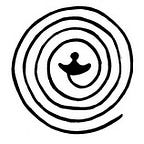Why you should fear death
“Have you no hope at all? And do you really live with the thought that when you die, you die, and nothing remains?” “Yes,” I said.”
― Albert Camus, The Stranger
Unless you are religious or spiritual in any way you probably see death as an end to your being. An end to all your experiences, thoughts, and consciousness. And yet, most of us seemed to have embraced it with gleeful ignorance.
My girlfriend had once asked me about my deepest fear in life. She started off by telling me hers- the fear of losing others. I agree this can truly be the scariest thought to some — the idea of losing people you deeply care about. In fact, an answer that society would deem admirable. Mine on the other hand was much more selfish. It was my own death. She thought it was ludicrous to even say such a thing. Of course, of all things how can one’s own death be the greatest of fears.
One of humanity’s greatest achievements has been a lie so diabolically engraved into the deepest recesses of our minds that it is almost unquestionable at this point.
It started when I was twelve. By this time I was an atheist but completely unaware of the enormous burden that it comes with. I was almost asleep, making my way through a series of increasingly incoherent thoughts. Suddenly I was caught off-guard with a possibility that until this point I hadn’t truly examined in all its details. What would happen after my last breath? I would enter the void. And what would the void comprise of? Nothingness. This concept when realized at its truest potential can send any sane person into a state of panic. And yet, even after all these years, people seem to be completely unfazed as I try to explain. How have we evolved to be aware of such great things and yet learned so well to ignore one of the most significant aspects of life?
In his book Sapiens, Yuval Noah Harari argues that one of the greatest reasons why Homo Sapiens went from the middle of the food chain to the top while wiping out several species (including the ones in the genus Homo) was their ability to believe in a common myth. And the ones that were able to convince others of these myths ended up making the decisions for the group. Thus emerged religions, traditions, and beliefs in a common moral code. As men got out of their caves and started living more and more comfortable lives they starting building a world of symbols and meanings that got more and more disconnected from the biological world we live in. And thus they would believe that life had meaning beyond just surviving and passing on their genes. This evolutionary trait of belief became so crucial that man can no longer see it for what it is. They lie to themselves and cover up the possibility by all means necessary.
The first lie is the insignificance of life when compared to the vastness of this universe. Our existence is but a minuscule speck, compared to the seemingly infinite realms of stars and galaxies. An ocean would never care if a droplet was to be removed. Yet, the immensity of this universe and beyond are merely something our minds conceive of. Everything that we have ever learned of this universe and everything that we ever will, will be through our senses and shall be confined to our minds. And so, death shall not only bring an end to us but to the universe around us. Whether the universe exists after that and the state in which it exists is no longer of any consequence for we are not there to witness it. It might as well be the case that the universe came to an end seconds after our death along with all our loved ones and it wouldn’t change anything.
The second lie happens to be one that questions immortality. A life of immortality would somehow lead to an absence of meaning in life (a construction of the symbolic world). It is the shortness of life that gives it meaning. And yet, one who is at the brim of his own death wishes nothing more than to go back to his twenties and relive every moment. Perhaps make better judgments this time. Life is never long enough to truly enjoy all the beauties in it. Rather than living an eternity and becoming truly profound one has to construct a meaning to deceive themselves into mortality.
The third lie is of acceptance. People have claimed to have accepted death. In reality, they have only accepted certain aspects of death and are completely oblivious to others. They are still tied to this symbolic world to give them a reason to accept death. A belief in their legacy, their loyalty to their nation, their families, their ability to stand against all odds and face death.
Perhaps one of the harshest truths is not death itself but the inevitability of it
As man grew aware of his own death it became important for him to shield himself against it. And so he did. He surrounded himself with symbols and myths and declared that he has surpassed his own death in some fashion. That his death would mean nothing for this symbolic world would carry on well beyond his physical existence.
And so we go about our day unable to fear the one thing that we truly should
